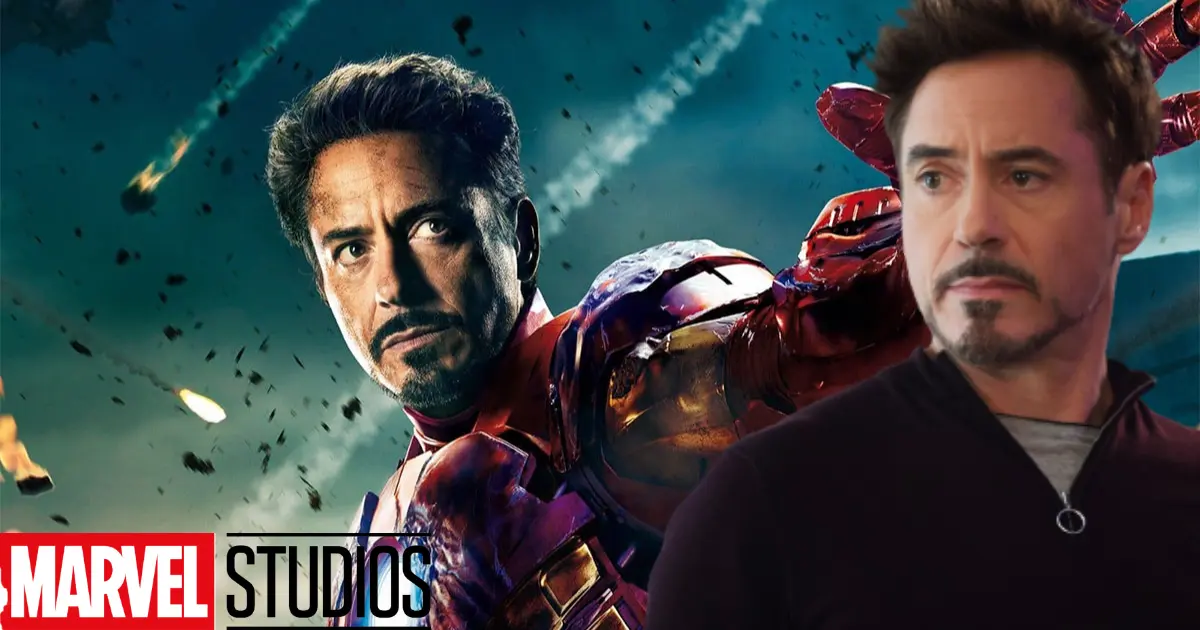Robert Downey Jr. explained how Marvel Studios delayed the production of Iron Man to account for a possible poor box office reception.
The Marvel Cinematic Universe (MCU) has expanded to become the largest franchise in the world today, but before the superhero craze, the idea of an Iron Man movie — especially one starring Robert Downey Jr., who had served time in prison for drug-related offenses less than a decade earlier — seemed absurd.
After fourteen years and 38 MCU films later, the Iron Man trilogy is the seventh-highest-grossing film of all time, Tony Stark is one of the most well-known fictional characters in the world, and Robert Downey Jr. is one of the highest-paid actors in Hollywood right now.
When Iron Man’s future was in doubt and Marvel was on the verge of bankruptcy, the studio had a backup plan in place, but looking back, things didn’t exactly go as planned.
Also, Read According to Star, Deadpool 3 will take place BEFORE Logan.
Star of Iron Man Discloses Marvel’s Backup Plan In Case Of Film Failing

In a clip from the Director’s Guild of America’s “Afternoon with Robert Downey Jr.” event, the Iron Man star discussed how Marvel Studios had planned for the possibility that the MCU movie might not succeed, according to Chris Gardner of The Hollywood Reporter.
When questioned about it, the veteran of the MCU said that making the 2008 blockbuster was like “doing [their] version of a big-budget Robert Downey Sr. movie:”
Another story that goes full circle. Lest we forget, it was Favreau who was pushing for me but knew he had to play the politics or he would have no leverage going forward. I traded my previous obsession for this role, and I got it. Then [Jon] Favreau and I launched a historic run of what is now the cinematic universe by essentially producing a high-budget [Robert Downey] Senior film in our own image. With the aim of making it as marketable as possible, we used all the genre film conventions.
Iron Man’s studio had low expectations, so the cast and crew “were a little bit left alone” to develop the project, according to Downey Jr.
Well, first of all, not many people anticipated that Iron Man would have a successful opening weekend or achieve much, so we felt a little isolated.
He continued by stating that the film was “ready to be written off if it tanked,” in line with Warner Bros.’ recent cancellation of Batgirl for a tax write-off:
“I learn more about how that thing was financed every day; it was basically prepared to be written off if it failed,” the author said.
The team had a lot of freedom because, according to the actor, there weren’t “a lot of creatively aggressive eyes on [them]”:
“Therefore, it was ideal that there weren’t many creatively aggressive eyes on us. And by the time they gave it to us, it looked like the lunatics had taken over the asylum, similar to United Artists.”
Last but not least, Downey Jr. quoted Jeff Bridges, who said that making Obadiah Stane was like “doing a $200 million independent movie:”
“And Jeff Bridges, who I also recall saying, “Man, we’re doing a $200 million independent movie, man,” comes to mind. Additionally, there was the unmistakable impression that it was much better organized.”
Why Marvel Became a Risk Taker With Iron Man

Iron Man was one of Marvel’s lesser-known heroes back then, which may make the hesitation to make a movie about him seem absurd in the modern world. After all, the film rights to some of the most well-known heroes, including the X-Men, Fantastic Four, Hulk, and Spider-Man, had already been sold to other parties.
When the MCU first began, Marvel had a limited toolkit at their disposal, and the tale of how Iron Man came to be the franchise’s launch film is actually quite hilarious. Tony Stark’s suit-clad hero was by far the most popular among a focus group of children when they were shown various heroes and asked which toy they would prefer to play with.
The $140 million production budget shows that the studio had some faith in this gamble, even though precautions were taken to limit any potential harm. Although it may seem risky, letting director Jon Favreau has more creative freedom reduced the amount of time and money required.
Everything turned out for the best in the end because the “lunatics” Robert Downey Jr. referred to as the creative team went on to create one of the greatest and most influential superhero films of all time, turning around a startling $585 million box office haul and launching a major franchise.

